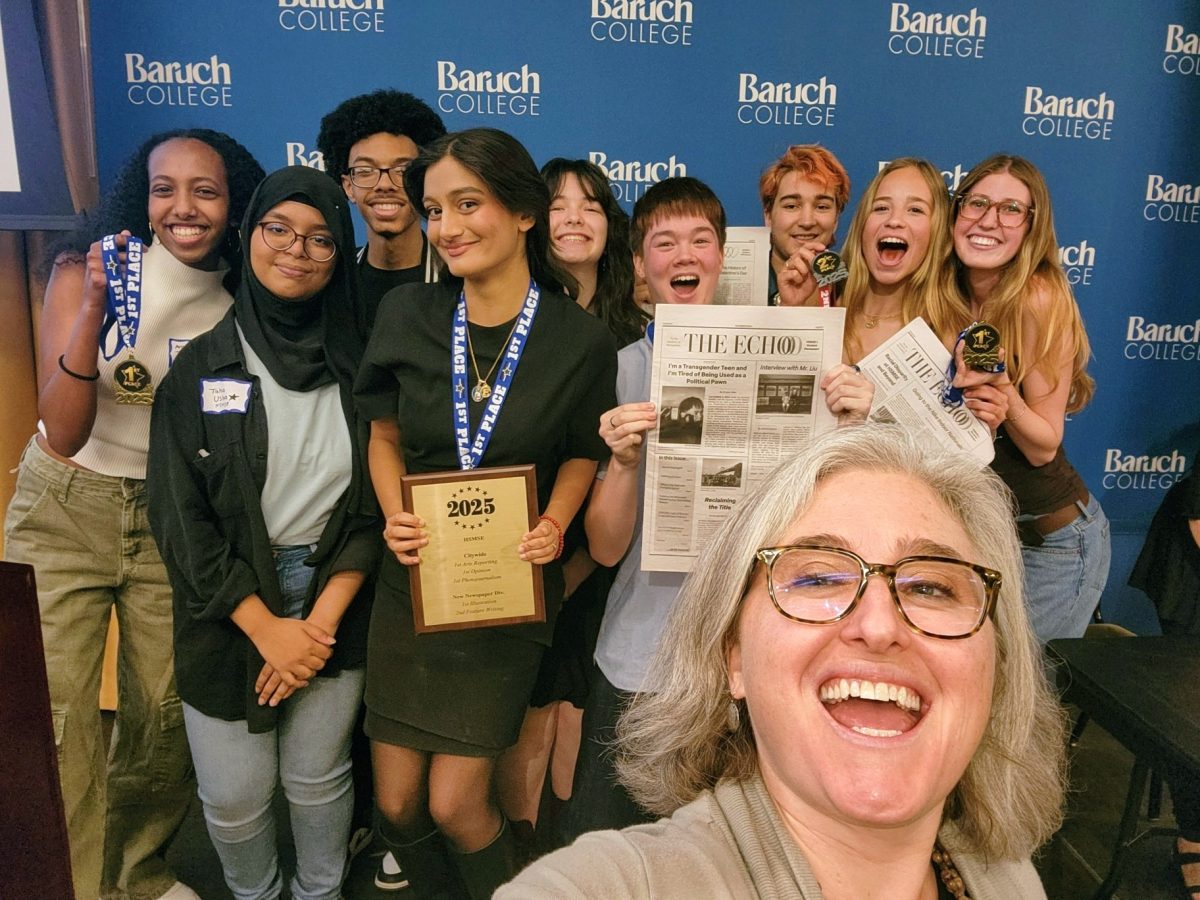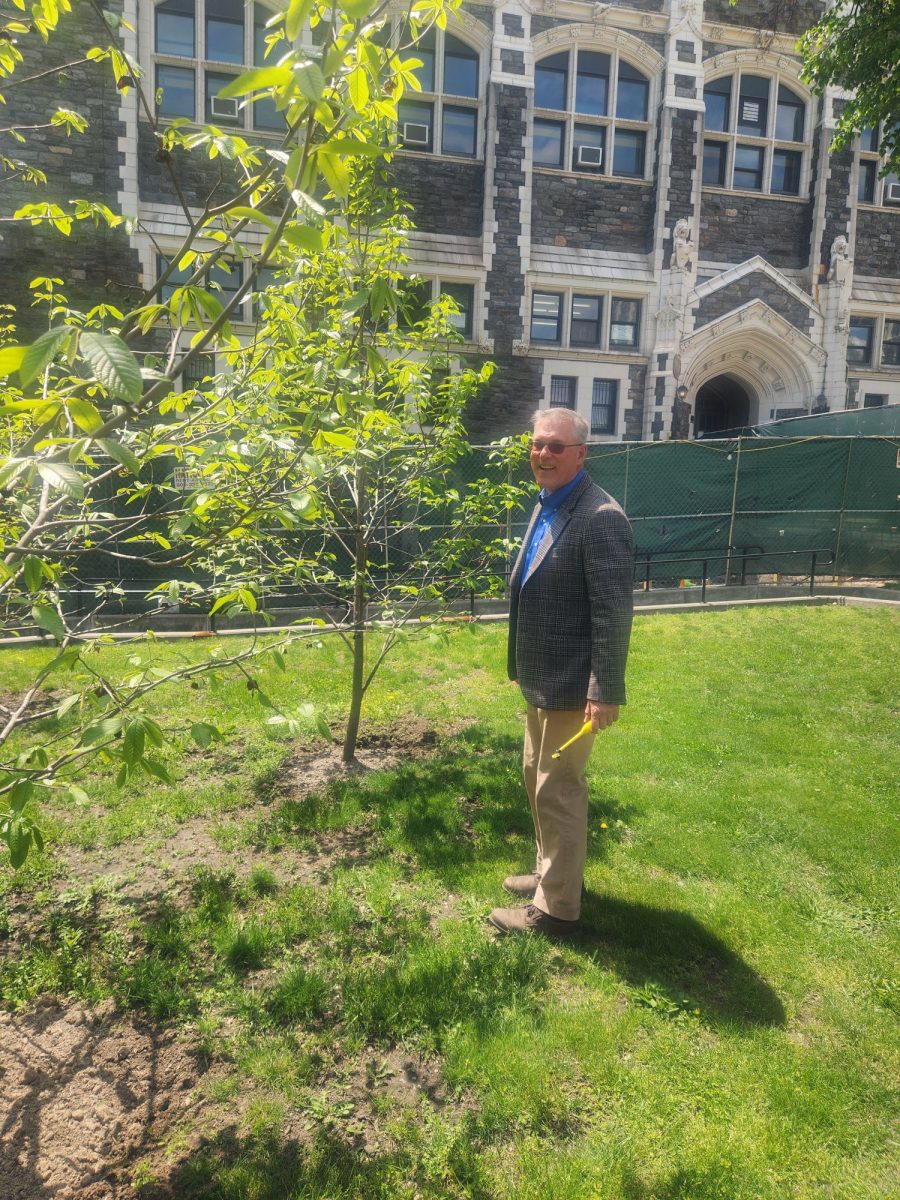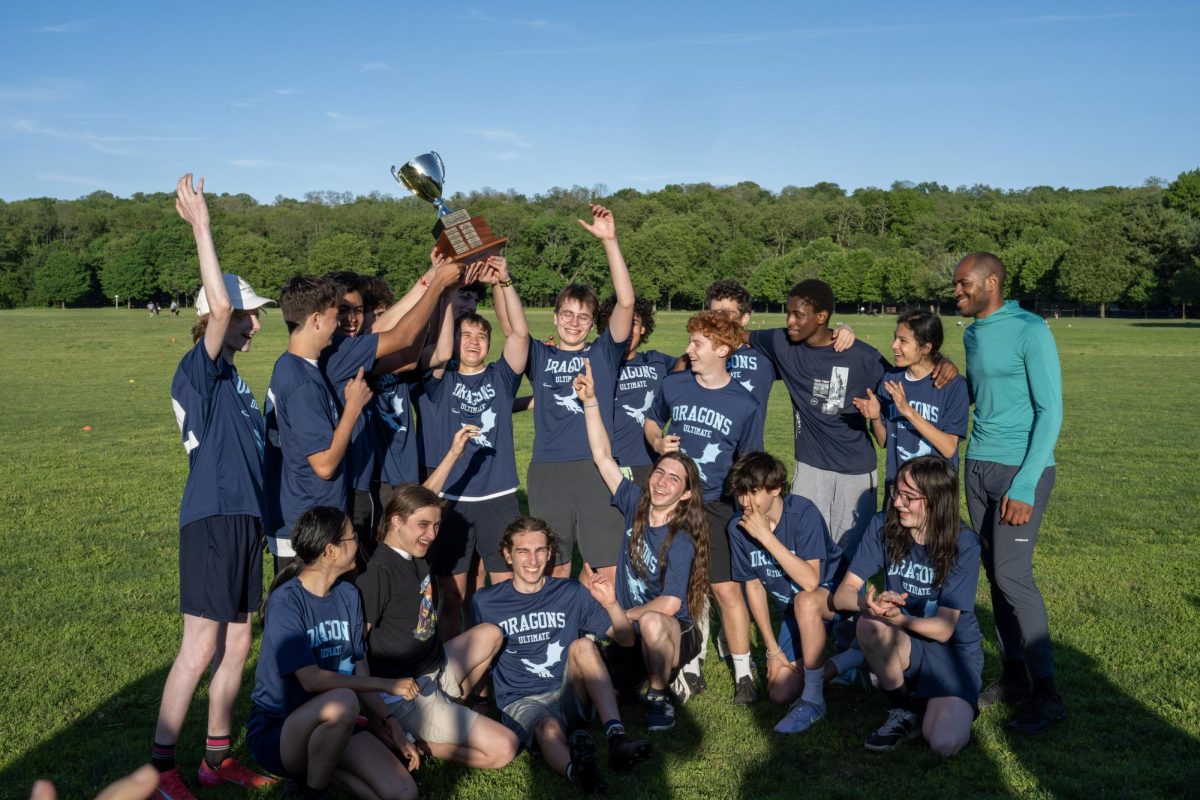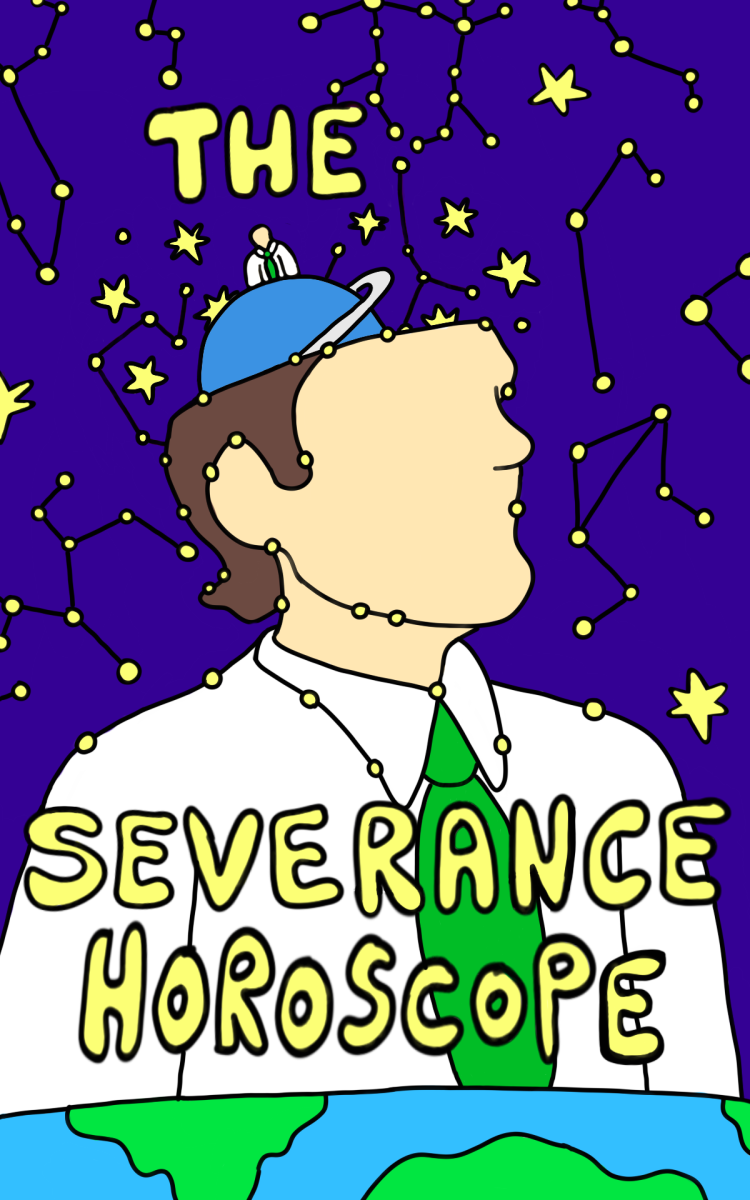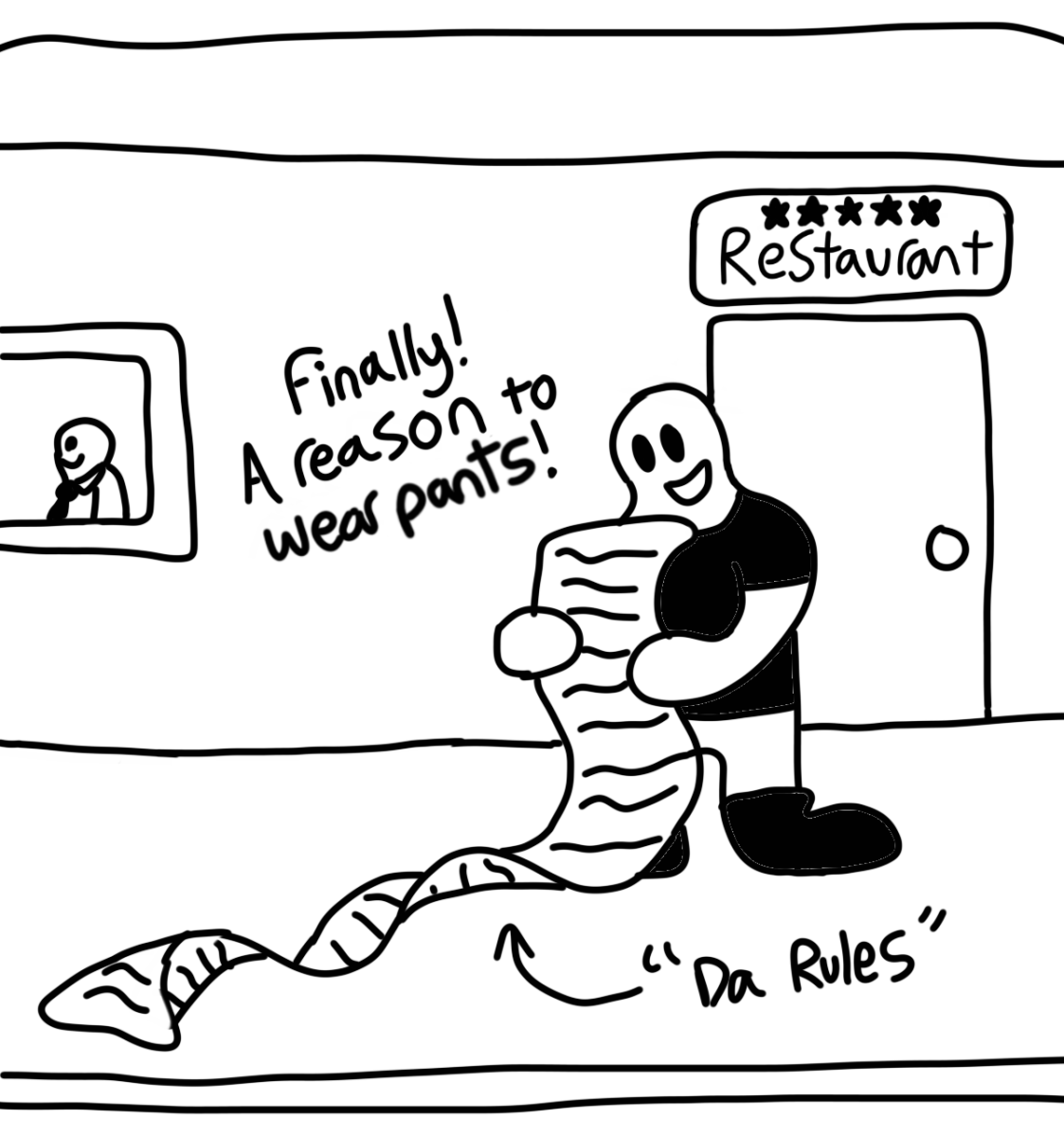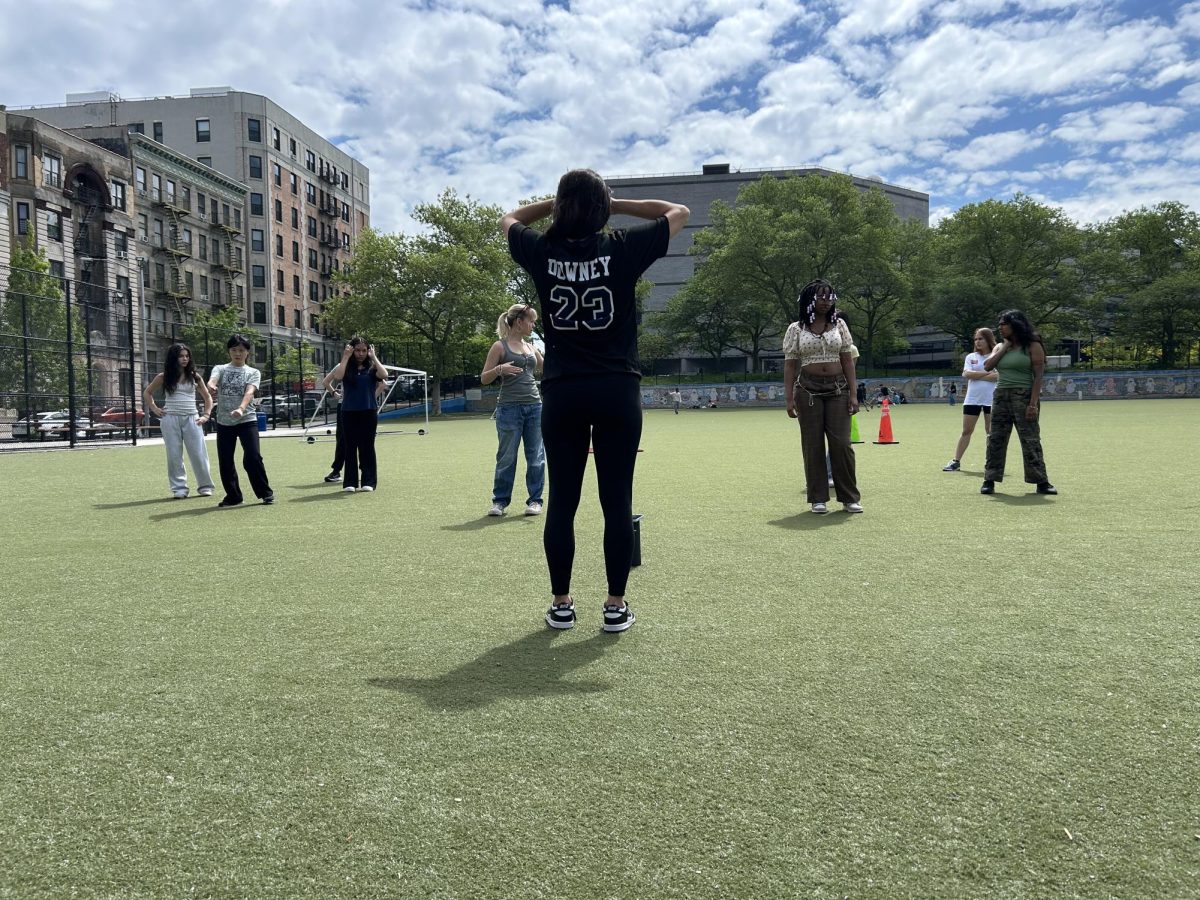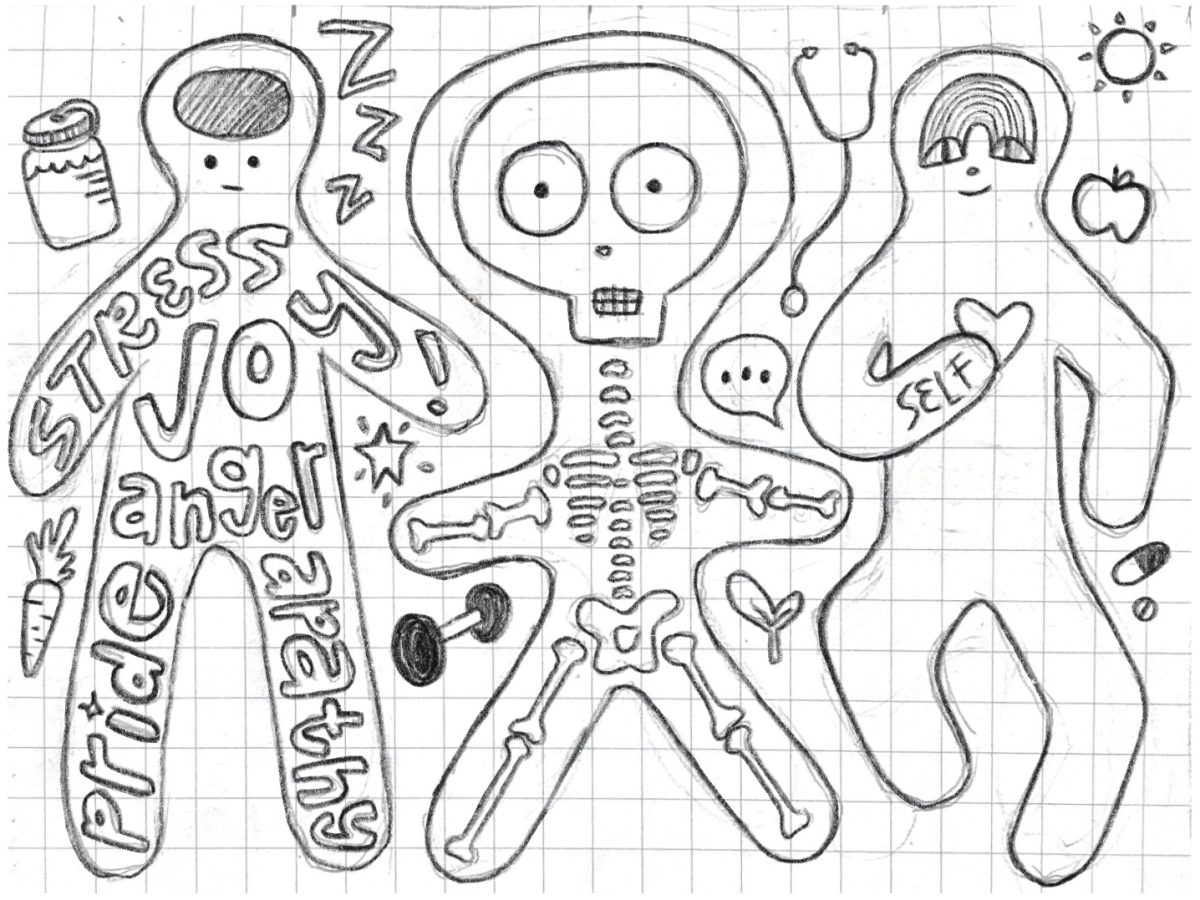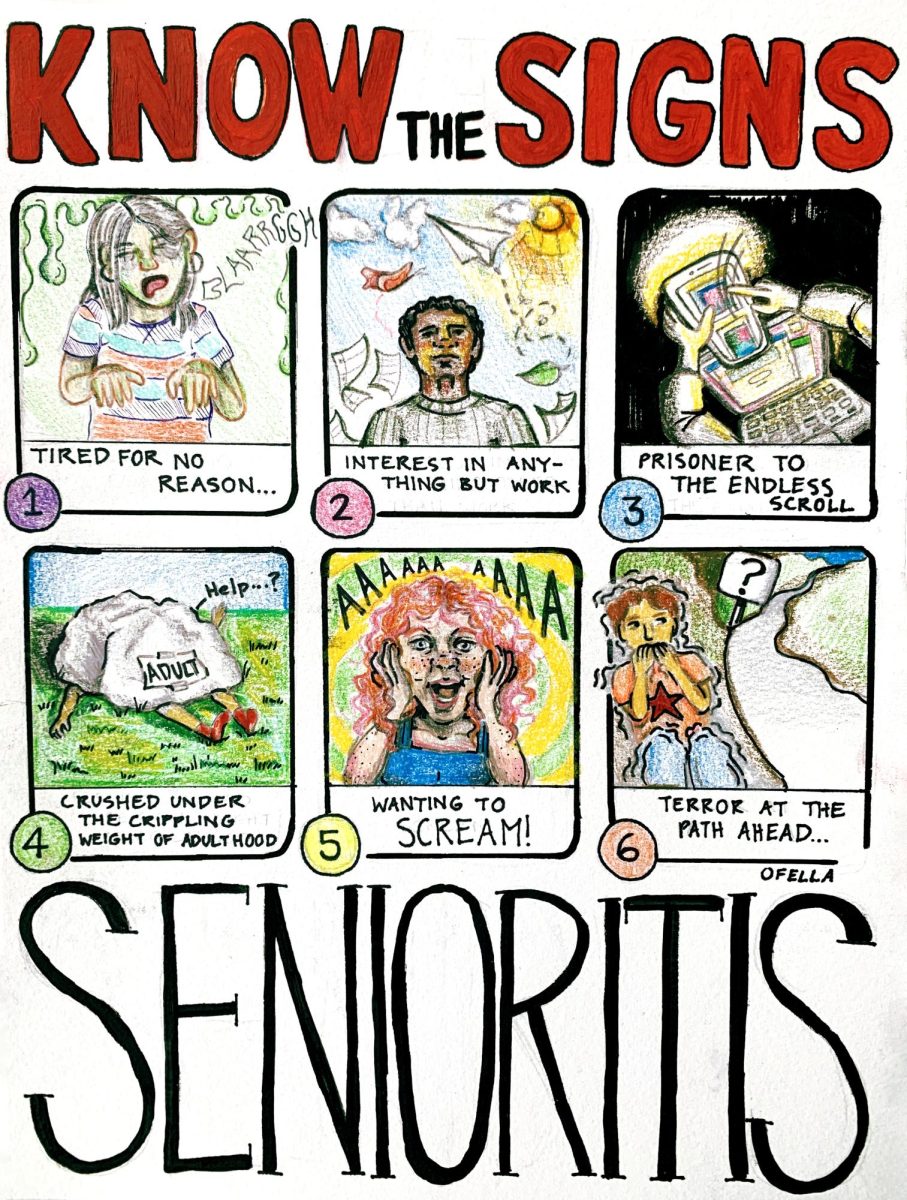I’m actively fighting back the desire to shut my computer, curl back under the covers, stare out the window, scroll mindlessly on Instagram — anything but this. Looking back on my junior year self who managed to co-found and run the newspaper on top of her other coursework and extracurriculars, I feel like an imposter. You’d think after making it through college applications, writing essay after essay in just a few weeks and applying to just under 20 schools, I’d have some newfound confidence in my work ethic to keep me going. As an underclassman hearing about the second-semester senior slump, I’ll admit I was embarrassingly naive. I fell into what psychologists call “the optimism bias”: I thought I would be the exception. But now, I too have fallen victim to the familiar pseudo-affliction known as senioritis, and I can tell you it’s not what you might expect. I thought I knew the telltale signs: sleeping in, sauntering in late to class with the swagger of someone who just got into the college of their dreams, or skipping school altogether to go out partying with friends. But the reality is far more complicated.
I spoke to over a dozen members of the MSE community: teachers, staff, and, of course, seniors, who are all too familiar with the experience of senioritis. Many described senioritis as a state of apathy that sets in after college applications are over, especially once acceptances are in. The thoughts that used to fuel us — “I need to go to school and do my work so I can get good grades and get into a good college” — no longer apply. So seniors start to slip. Maybe it starts with one late homework assignment, then a couple. A missed alarm becomes a reason to miss school altogether. Wearing acceptance letters on our sleeves, school for seniors feels optional.
Senioritis comes in as many variations as there are afflicted seniors, and many are dealing with something beyond what we think of as the ‘classic case’ of senioritis. For some it started far earlier than they received their acceptances. Senior Fowzia Islam described feeling burnt out after four years of high school: “For me, it’s been more like I’ve just been so stressed, I just like stopped wanting to go to school. I’m just like, I don’t want to do this anymore.” Even senior Alua Zhanuzakova, who was voted “Most Studious” almost unanimously by her class, said, “I’ve definitely experienced it myself. I mean, there are some days where I just don’t get out of bed anymore and I stay at home.” Fowzia and Alua’s experiences, along with those of other seniors I’ve spoken to, demonstrates that the annual outbreak of senioritis at MSE might be partially due to our school culture. Although MSE might feel far more laid back than many of our fellow specialized high schools, it’s still a rigorous school, and after more than 3 years of pushing and pushing and pushing, the college process is like the final sprint to the finish line. And then? We collapse.
Once you know where you’re going and have already begun daydreaming about your future classes, friends, and lives — the present begins to feel, at best, like something to get through. As senior Zohar Almani explained, “A lot of subjects feel pointless now. It’s like if you know what career you’re going into, some of these classes will never help you.” If your future’s set on bioengineering, with the path to a degree and career now before you, pulling yourself out of bed for a humanities class might feel pointless. “In my English class, I think like half of us show up,” said Zohar.
It’s our English teachers who seem to be the ones on the front lines battling our senioritis. Every year, MSE seniors begin a deep dive into a topic of their choice, with the ultimate goal of writing a paper that communicates their research. Unfortunately, the start of this project is conveniently situated at the very peak of college application stress, and although most of the actual writing occurs after everything’s submitted, this is exactly when the senioritis reaches a full boil. As senior Maysam Sachedina explained,“A majority of people have not done their research paper because…we [MSE students] don’t write.” No matter how many times I heard this, it was always a knife to the heart, because if being on all 2 of MSE’s student publications has taught me anything, it’s that we STEM nerds can write compelling articles, stories and even (gasp) poetry. But senior year saps it out of us.
So why not just scrap the paper entirely? “We always talk about changing that research project, but that feels like caving,” said Ms. Walker. Getting rid of the research paper would be giving in to the misguided idea that writing doesn’t matter apart from helping you get into college. It may be a challenge, but we can’t punish our English teachers, who recently took hours of their time to help us write, edit and polish our college essays and submit our recommendations. “You don’t want to be chased, we don’t want to do the chasing,” said Ms. Walker. Apart from the research project, in the last few months of senior year, Ms. Walker said that “the mood in the school seems to be like you just let kids come in and do whatever, but that’s not what I’m paid to do. So it kind of kills me.”
To understand how senioritis is dealt with at our school, I spoke with the person responsible for dealing with the actual logistics of it. If you’re on Ms. Bennett’s list, or even if you’re not, you probably know her best for keeping an eye on our attendance, particularly for MSE seniors. While Ms. Ortiz tracks daily attendance, Ms. Bennett writes reports to keep track of every student over time. She takes the time to check in individually with seniors who have been missing school not only about academics but also their mental and physical wellbeing. If there is something serious going on, Ms. Bennett wants to help. “If they would come talk to us, we could troubleshoot with them,” she said. “The whole reason why we track attendance is to make sure students are safe.”
Still on a mission to find a more accurate definition for senioritis, I found our resident “double doctor,” Dr. Aleyasin, articulated it best. If you’ve had Dr. Aleyasin as a teacher, you’ve probably heard him criticize the term senioritis, not because he doubts its existence but because, “as a trained medical professional, ‘-itis’ is inflammation. Usually the name of a disease is ‘-osis’ — like neurosis, psychosis, right? So it could have had a better name, like senoirosis,” he explained. To Dr. Aleyasin, seniorosis isn’t like a swollen appendix, it’s more like a “kind of a weird empty space.” He describes that often, “when you achieve a goal, there is a depression that usually follows.” After throwing everything we have at these schools, all we get, if we’re lucky, is a letter and a few “congratulations!” emails from them. As Fowzia said, “All these four years for this. It’s kind of anticlimactic.” If one thing’s certain, senioritis (sorry Dr. Aleyasin!) is not a happy place, nor something anyone chooses to experience.
Part of the struggle may be the realization that we have our whole lives ahead of us. We just emerged from perhaps one of the most stressful times in our lives to realize that this stress will never fully dissipate — welcome to being an adult, where there is always more to do. We must grapple with this reality while also continuing to live each day as a teenager, a role which carries plenty of its own challenges, ranging from figuring out your personal style (Would I look good in these baggy pants?) to thinking about what you’d like to do with the rest of your life (Do I really want to be a doctor?). It can all feel like the beginning of the end, the crippling weight of adulthood rearing its ugly head, but none of it matters nearly as much as you think. Who you are now is not who you’ll be in five or ten years, and no matter what anyone tells you, the college you attend will not determine the course of your life, you will.
The rare seniors who claim immunity to senioritis spoke about the infamous “red letter,” a college acceptance revoked due to slipping grades. “There’s that fear that’s in the back of your head. So like every time you find yourself too far down like that hole, think about that and try again to motivate yourself,” said senior Evie Shtivelman. But by once again placing our focus on grades and college admission, we end up on another path to the same dead end.
So when the alarm goes off, what else will keep you from pressing snooze? Maysam has found motivation in things like reading and track and recommends “finding something you enjoy and using that as an excuse to do school stuff as well.” You might find that just the act of doing something, especially physical activity, will help you find motivation to do other things — including that missing work you’ve let pile up. Take some time to admire the beauty of a physics problem or enjoy an interesting conversation in English class, and you might even find some value in it beyond the grades.
Ultimately, what frustrates me most about senioritis is that we are told that this is senior year! It’s supposed to be fun, some even go as far to say, one of the best times of our lives. While I think things will improve after APs (and I finish writing this article), I certainly hope this won’t be my peak. Fowzia, the editor in chief of the yearbook, articulated the bittersweet (and confusing) reality of senior year well when she spoke about her experience managing seniors in yearbook: “It’s been a little difficult because sometimes they don’t want to come in or do much, but in the end it’s really sweet because everyone realizes like, ‘Oh, we’re all gonna leave, so let’s make it the best we can before we do.’” Because yeah, senior year mostly sucks. But it’s also an opportunity to look back at all you’ve done, the people you’ve met, the challenges you’ve survived, the ways you’ve grown — knowing that this is only the start of the life you’ll lead. But whatever you do, don’t spend the next two months dwelling in the future before it’s even here. See the present for what it is — the good, the bad and the ugly — and live it. Wrestle yourself out from under the comforter to feel the spring sun, pull yourself through your commute to school so you can see your friends — be a senior, in all its crazy rollercoaster glory, because before you know it, it’ll be over.
If you’re struggling, know that MSE has a robust mental health support system for you to utilize. Please speak with Ms. Patterson or Ms. Barnewold or stop by The Wellness Center (right by the first floor entrance), where our onsite counselor, Ms. Dylan Clay-Delvin, is there to help.








